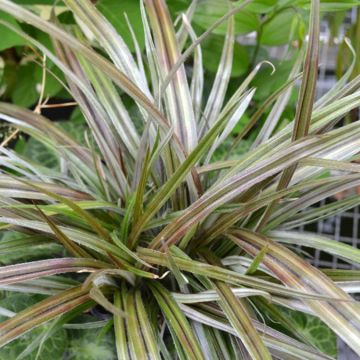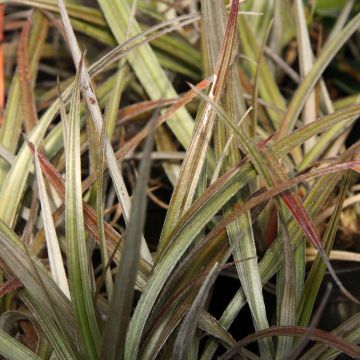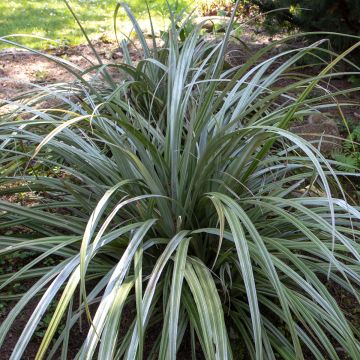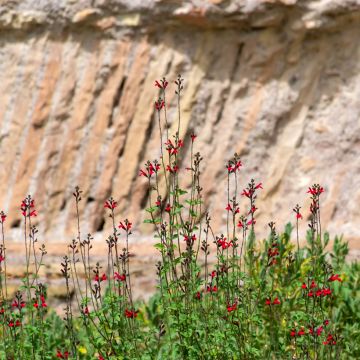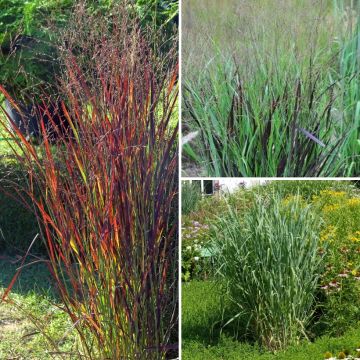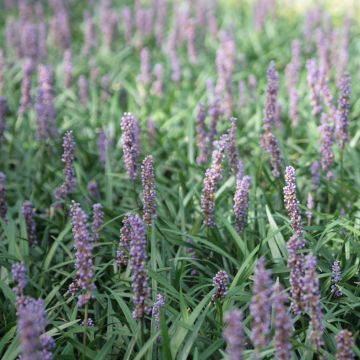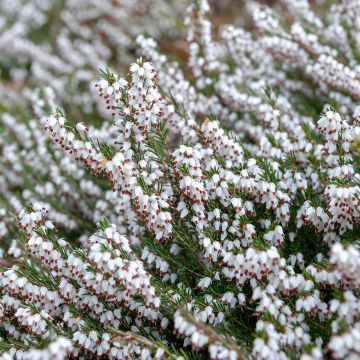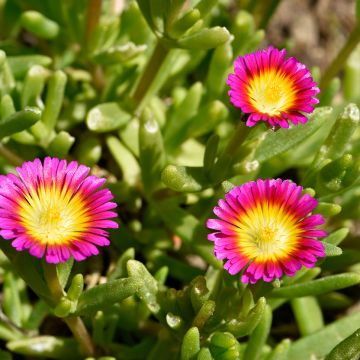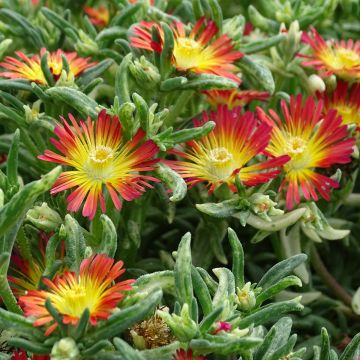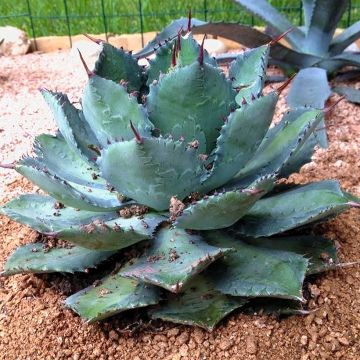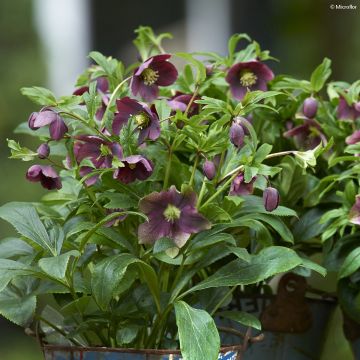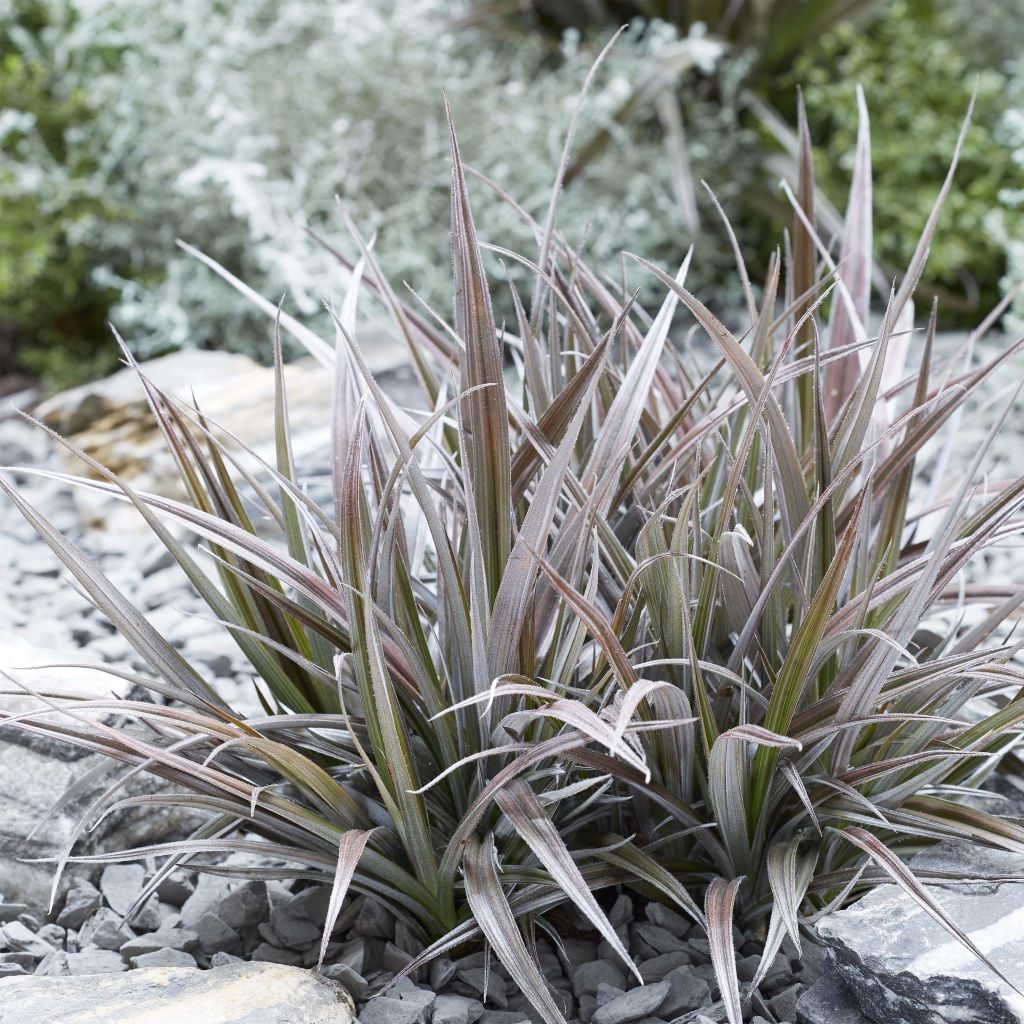

Astelia Red Shadow
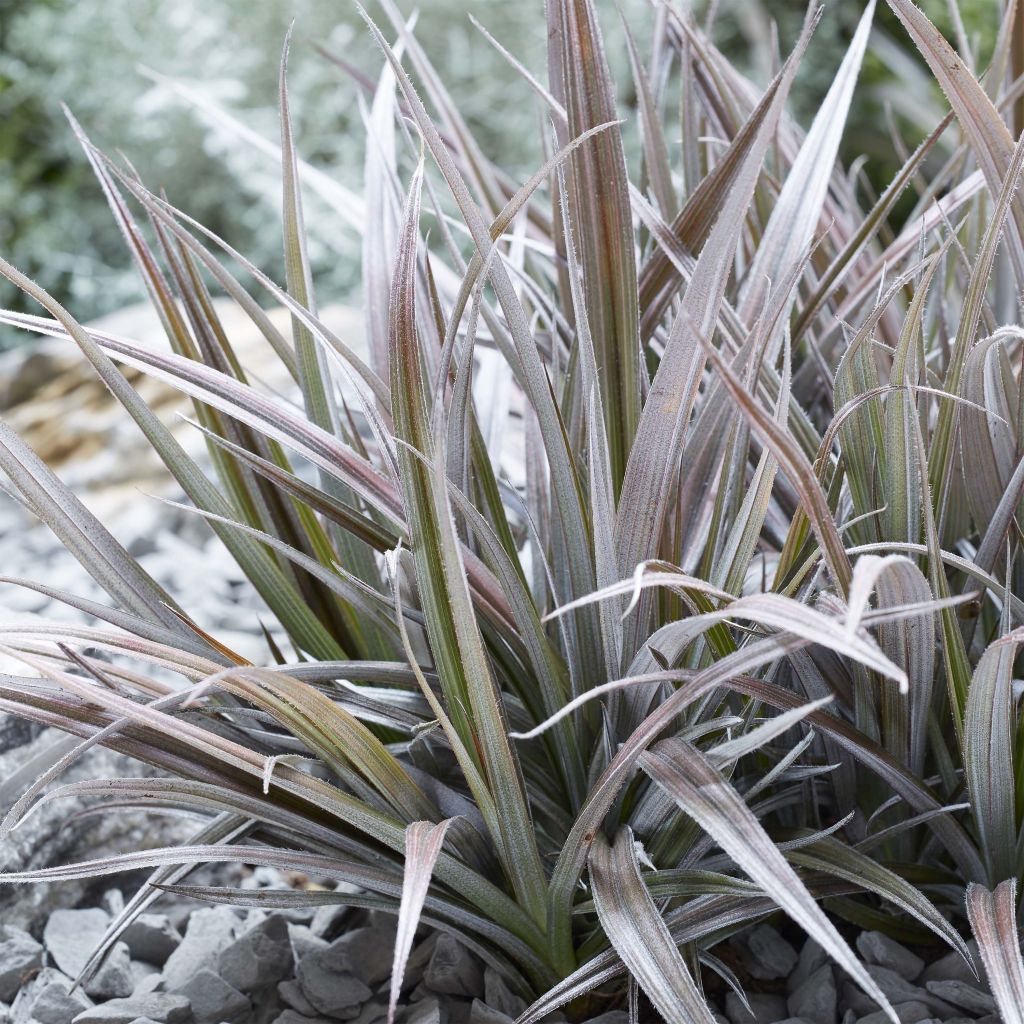

Astelia Red Shadow
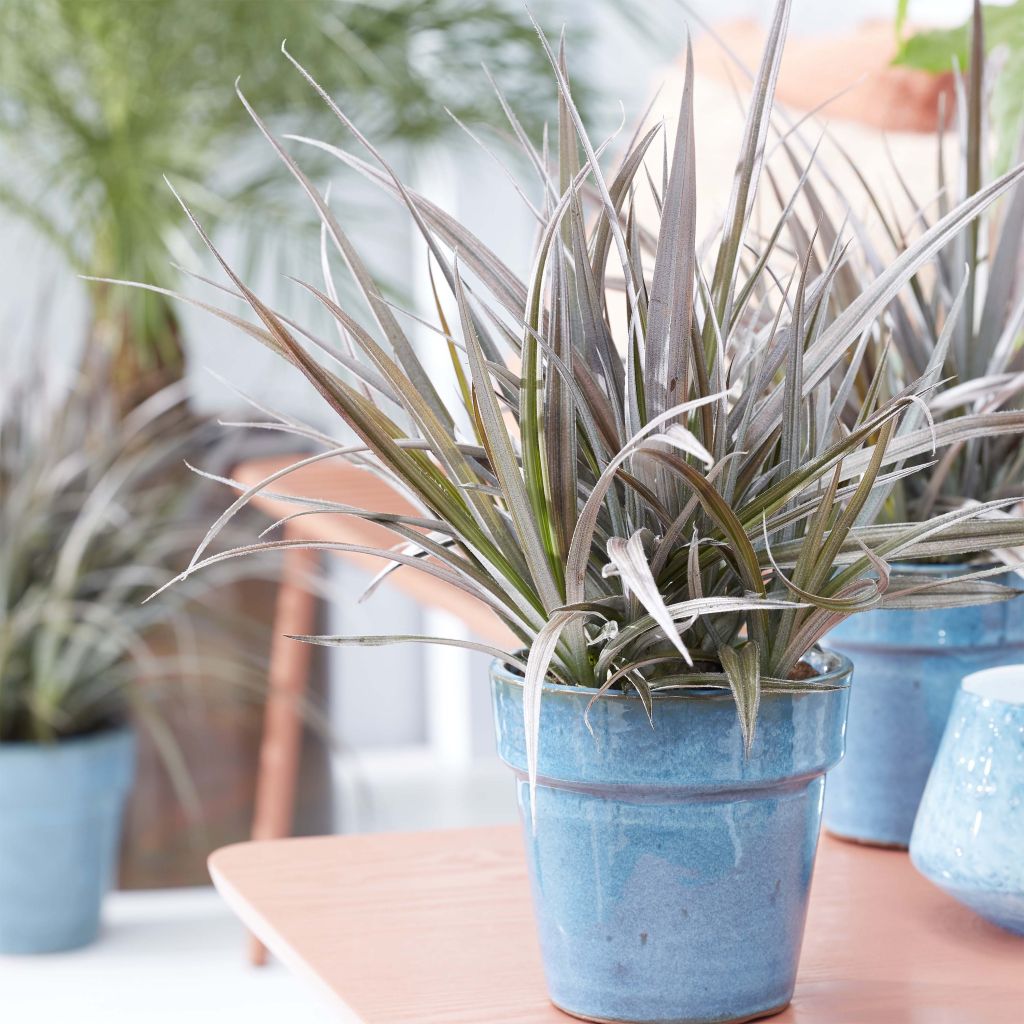

Astelia Red Shadow
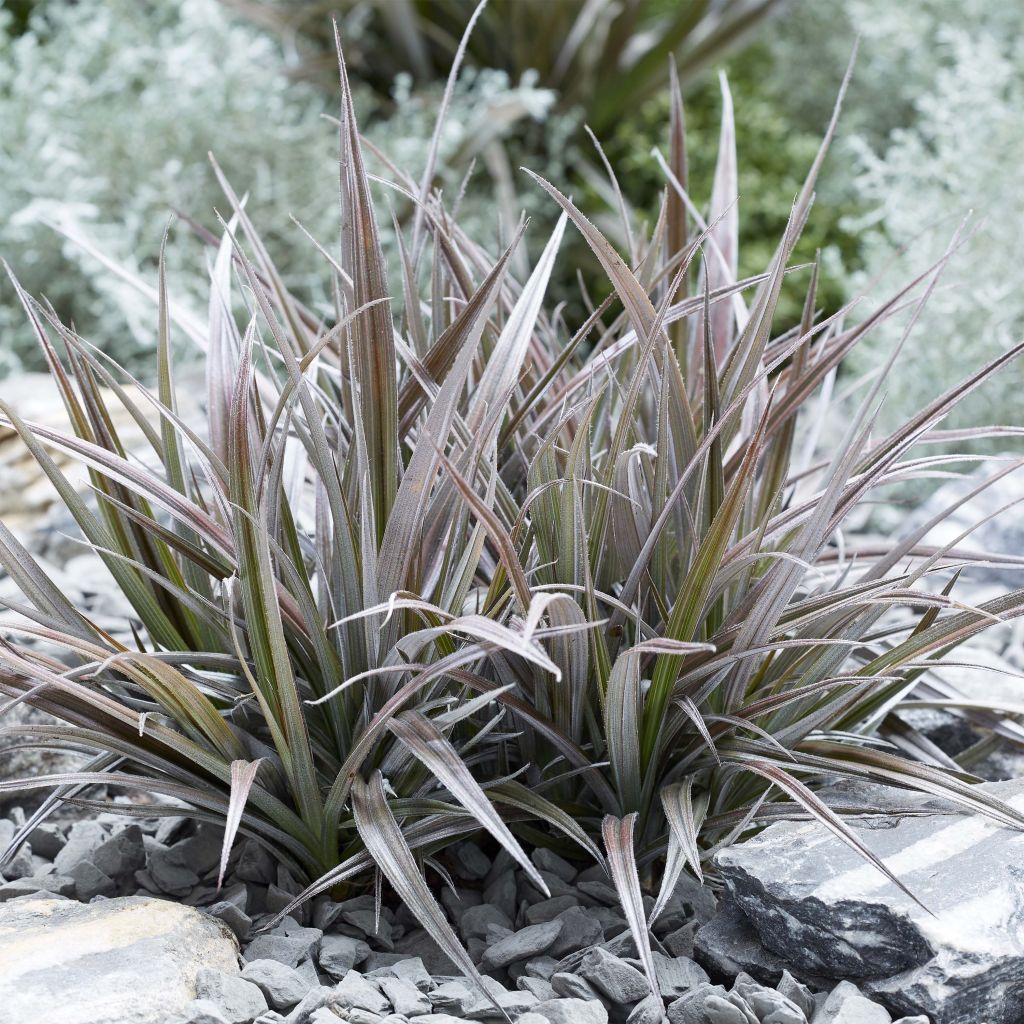

Astelia Red Shadow
Astelia Red Shadow
Astelia Red Shadow
Kakaha, Perching Lily, Bush Lily
Special offer!
Receive a €20 voucher for any order over €90 (excluding delivery costs, credit notes, and plastic-free options)!
1- Add your favorite plants to your cart.
2- Once you have reached €90, confirm your order (you can even choose the delivery date!).
3- As soon as your order is shipped, you will receive an email containing your voucher code, valid for 3 months (90 days).
Your voucher is unique and can only be used once, for any order with a minimum value of €20, excluding delivery costs.
Can be combined with other current offers, non-divisible and non-refundable.
Home or relay delivery (depending on size and destination)
Schedule delivery date,
and select date in basket
This plant carries a 12 months recovery warranty
More information
We guarantee the quality of our plants for a full growing cycle, and will replace at our expense any plant that fails to recover under normal climatic and planting conditions.
Would this plant suit my garden?
Set up your Plantfit profile →
Description
Astelia Red Shadow is a perennial plant, albeit not very hardy, but with a remarkable design. Resembling a compact phormium in its habit, it displays unique foliage, gently multicoloured and covered in silvery bristles that beautifully play with light. Its long ribbon-like leaves with a metallic sheen offer different shades of grey, brown, brick-red, and bronze-green. It will make a lovely centerpiece when planted in a large pot on a contemporary terrace during the warmer seasons in colder regions.
Astelia belongs to the Asteliaceae family, or the Liliaceae family according to classification. It is a relatively rare horticultural hybrid, originating from the species 'Astelia nervosa', native to the peat meadows of the North Island in New Zealand, with very silvery foliage. 'Red Shadow' has fairly wide leaves, tapered and slightly arched, covered in bristles. This superb rhizomatous perennial forms a dense, non-spreading clump. It reaches approximately 80 cm (32 in) in height, with an equivalent spread. The leaves display bands of different colours, obscured by numerous bristles, giving the foliage a quite fantastic appearance. Flower stalks emerge from the foliage in spring, depending on the climate. They bear rather inconspicuous but fragrant flowers. Its relatively underdeveloped root system allows it to adapt well to container cultivation.
Astelia Red Shadow is a plant of great ornamental value, suitable for medium-sized borders, rockeries, or to adorn a pot, preferably in a very mild oceanic climate, as it dislikes the heat and prolonged drought of very hot summers, as well as limestone soils. Whether used as a specimen or planted in groups, it structures the space and gives a very exotic charm to the garden. In colder regions, it will thrive in a large pot on the terrace or balcony, allowing it to be overwintered frost-free in a cold greenhouse or a minimally heated conservatory. In an urban or contemporary garden, it softens concrete structures. For an exotic and contrasting ambience, it can be paired, for example, with Leptospermum Karo Pearl Star, a soft pink ball of flowers in late spring-summer, the dark-toned Pittosporum tenuifolium Tom Thumb, or Olearia macrodonta 'Major', plants also originating from Oceania, and perfect companions for coastal areas. Like grasses, it is also a wonderful perennial for a modern garden with clean lines: a clump of Muhlenbergia capillaris, a true pink cloud in late summer, or Eragrostis trichodes Summer Train, resembling a golden-copper mist, would create a trio of great beauty alongside this Astelia.
Report an error about the product description
Astelia Red Shadow in pictures
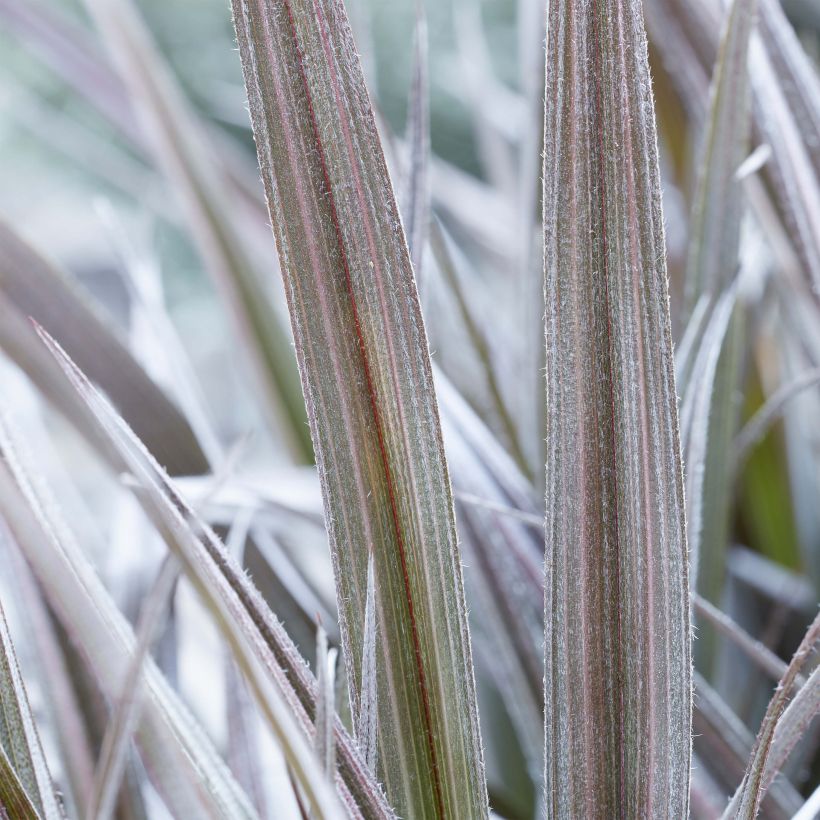

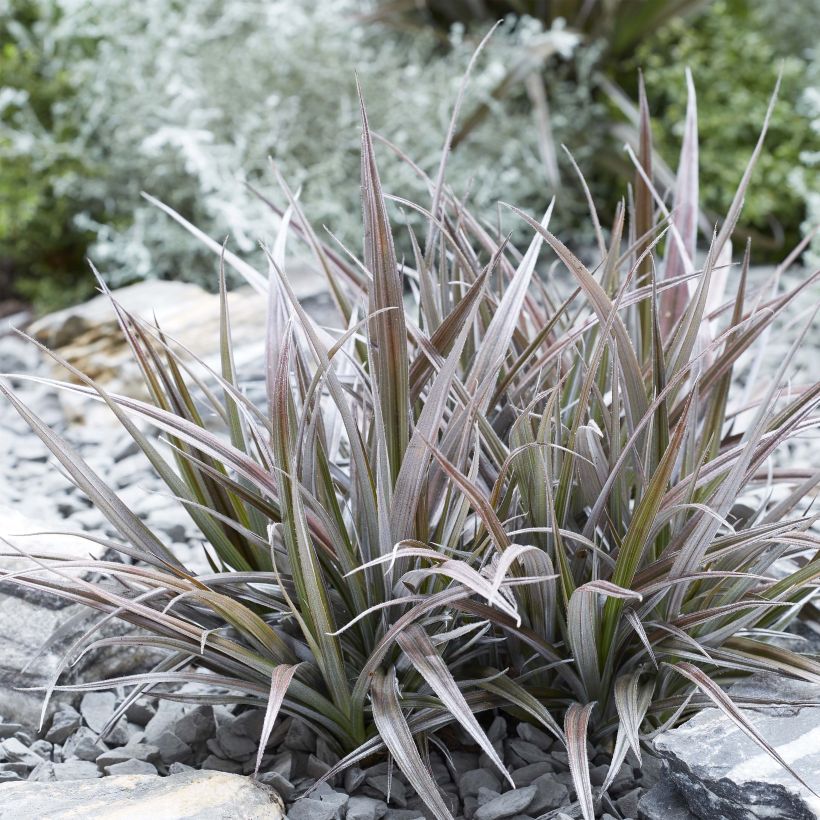

Flowering
Foliage
Plant habit
Botanical data
Astelia
Red Shadow
Asteliaceae (Liliaceae)
Kakaha, Perching Lily, Bush Lily
Cultivar or hybrid
Other Astelia
View all →Planting and care
Astelia Red Shadow is a tender plant that should be grown in the ground mainly in regions where frost does not drop below -6 °C (21.2 °F). Everywhere else, growing it in a pot is more suitable, allowing control over the nature of the substrate while watering and wintering in a frost-free, cool, and bright room.
Plant your Astelia in a trough or a large pot with the bottom filled with gravel, shards of pottery, or clay balls. The mix it is planted in should be fertile and well-draining (1/3 leaf soil, 1/3 compost, and 1/3 heath soil, enriched with a handful of crushed horn).
Place the plant in full sun if you live in a region with little sunlight or preferably in partial shade, which it greatly appreciates. Water during the growth period, preferably with non-limestone water, so that the soil never completely dries out. Feed the plant with "special green plant" fertiliser, diluted in the watering water once a month. In winter, reduce watering and fertilising, and let the soil dry out slightly between waterings.
In regions with mild climates and light frosts, plant your Astelia in the ground, in full sun, in a very well-drained soil and fairly fertile soil that is free of limestone. A mixture of compost, heath soil, and sand will be satisfactory.
In summer, make sure the plant does not lack water. In winter, it rainwater will suffice.
In case of severe frost, install a thick layer of mulch at the base of the plant and cover it with a winter protection cloth.
In the coldest regions, a thick mulch will help protect the roots from freezing in winter. In these conditions, the foliage will be damaged as soon as the temperature drops below -5 °C (23 °F), but the plant will regrow from the stump in spring in case of severe frost (down to -10 °C (14 °F).
Planting period
Intended location
Care
This item has not been reviewed yet - be the first to leave a review about it.
Similar products
Haven't found what you were looking for?
Hardiness is the lowest winter temperature a plant can endure without suffering serious damage or even dying. However, hardiness is affected by location (a sheltered area, such as a patio), protection (winter cover) and soil type (hardiness is improved by well-drained soil).

Photo Sharing Terms & Conditions
In order to encourage gardeners to interact and share their experiences, Promesse de fleurs offers various media enabling content to be uploaded onto its Site - in particular via the ‘Photo sharing’ module.
The User agrees to refrain from:
- Posting any content that is illegal, prejudicial, insulting, racist, inciteful to hatred, revisionist, contrary to public decency, that infringes on privacy or on the privacy rights of third parties, in particular the publicity rights of persons and goods, intellectual property rights, or the right to privacy.
- Submitting content on behalf of a third party;
- Impersonate the identity of a third party and/or publish any personal information about a third party;
In general, the User undertakes to refrain from any unethical behaviour.
All Content (in particular text, comments, files, images, photos, videos, creative works, etc.), which may be subject to property or intellectual property rights, image or other private rights, shall remain the property of the User, subject to the limited rights granted by the terms of the licence granted by Promesse de fleurs as stated below. Users are at liberty to publish or not to publish such Content on the Site, notably via the ‘Photo Sharing’ facility, and accept that this Content shall be made public and freely accessible, notably on the Internet.
Users further acknowledge, undertake to have ,and guarantee that they hold all necessary rights and permissions to publish such material on the Site, in particular with regard to the legislation in force pertaining to any privacy, property, intellectual property, image, or contractual rights, or rights of any other nature. By publishing such Content on the Site, Users acknowledge accepting full liability as publishers of the Content within the meaning of the law, and grant Promesse de fleurs, free of charge, an inclusive, worldwide licence for the said Content for the entire duration of its publication, including all reproduction, representation, up/downloading, displaying, performing, transmission, and storage rights.
Users also grant permission for their name to be linked to the Content and accept that this link may not always be made available.
By engaging in posting material, Users consent to their Content becoming automatically accessible on the Internet, in particular on other sites and/or blogs and/or web pages of the Promesse de fleurs site, including in particular social pages and the Promesse de fleurs catalogue.
Users may secure the removal of entrusted content free of charge by issuing a simple request via our contact form.
The flowering period indicated on our website applies to countries and regions located in USDA zone 8 (France, the United Kingdom, Ireland, the Netherlands, etc.)
It will vary according to where you live:
- In zones 9 to 10 (Italy, Spain, Greece, etc.), flowering will occur about 2 to 4 weeks earlier.
- In zones 6 to 7 (Germany, Poland, Slovenia, and lower mountainous regions), flowering will be delayed by 2 to 3 weeks.
- In zone 5 (Central Europe, Scandinavia), blooming will be delayed by 3 to 5 weeks.
In temperate climates, pruning of spring-flowering shrubs (forsythia, spireas, etc.) should be done just after flowering.
Pruning of summer-flowering shrubs (Indian Lilac, Perovskia, etc.) can be done in winter or spring.
In cold regions as well as with frost-sensitive plants, avoid pruning too early when severe frosts may still occur.
The planting period indicated on our website applies to countries and regions located in USDA zone 8 (France, United Kingdom, Ireland, Netherlands).
It will vary according to where you live:
- In Mediterranean zones (Marseille, Madrid, Milan, etc.), autumn and winter are the best planting periods.
- In continental zones (Strasbourg, Munich, Vienna, etc.), delay planting by 2 to 3 weeks in spring and bring it forward by 2 to 4 weeks in autumn.
- In mountainous regions (the Alps, Pyrenees, Carpathians, etc.), it is best to plant in late spring (May-June) or late summer (August-September).
The harvesting period indicated on our website applies to countries and regions in USDA zone 8 (France, England, Ireland, the Netherlands).
In colder areas (Scandinavia, Poland, Austria...) fruit and vegetable harvests are likely to be delayed by 3-4 weeks.
In warmer areas (Italy, Spain, Greece, etc.), harvesting will probably take place earlier, depending on weather conditions.
The sowing periods indicated on our website apply to countries and regions within USDA Zone 8 (France, UK, Ireland, Netherlands).
In colder areas (Scandinavia, Poland, Austria...), delay any outdoor sowing by 3-4 weeks, or sow under glass.
In warmer climes (Italy, Spain, Greece, etc.), bring outdoor sowing forward by a few weeks.






























